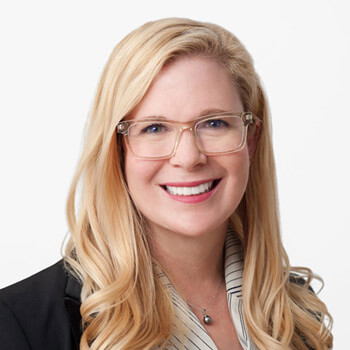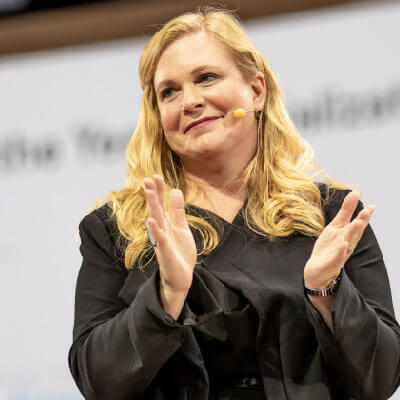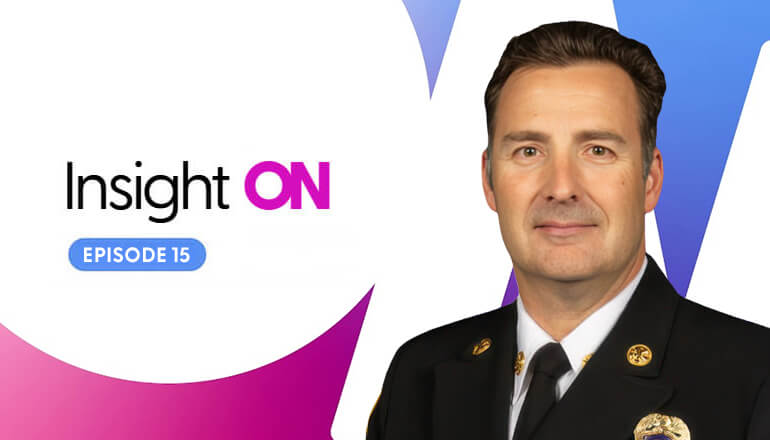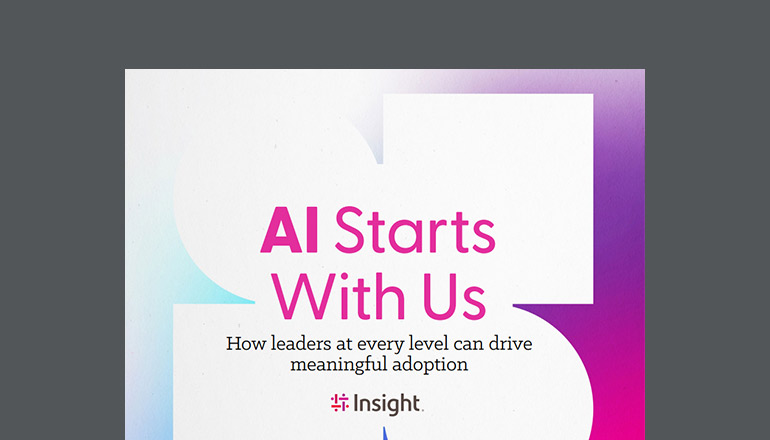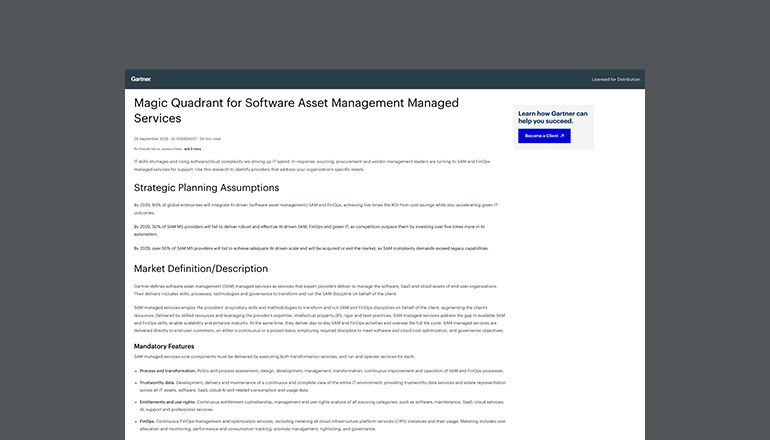Article CXO Corner: Why Deciding Fast and 'Feeling Foolish' Can Help You Be a Better Leader
Q&A With Carolee Gearheart, Global Channel Chief and Vice President of Global SMB Sales, Google Cloud
By Insight Editor / 17 May 2021 / Topics: Featured , Cloud , Digital transformation
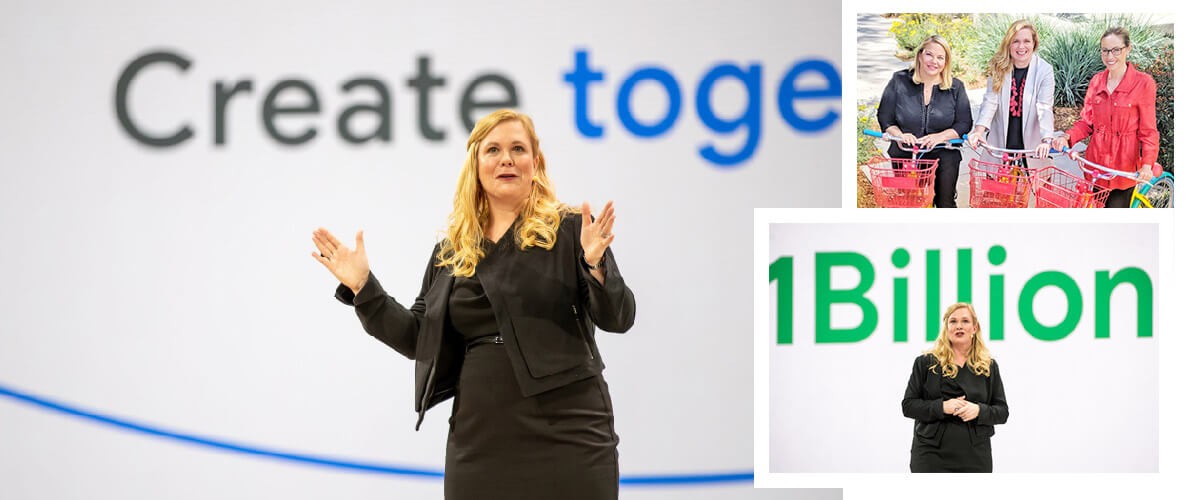
Business leaders today are challenged with decisions and responsibilities far beyond their job description. But for Carolee, making quick decisions amidst uncertainty, leading teams through change, and championing a diverse and inclusive culture inspire an intense passion and excitement for her role with Google Cloud.
You’re a global channel chief and the head of worldwide SMB sales for Google Cloud. What does your role look like today and how do you see it evolving?
Well, like every person here at Google Cloud, I’m responsible for making sure our customers are successful, in whatever way they define it, with our solutions and offerings. But more specifically, on the channel side, I’m responsible for making sure our partner community is both adding value to our customers’ experience, and that we’re ensuring our partners get real value from working with us to solve big customer challenges.
My organisation owns the partner program for all types of partners for Google Cloud, so we work to ensure we’re equipping and enabling our partners to make the most of the solutions and opportunities with Google Cloud. As the global head of our SMB business, my job is to ensure we’re reaching this segment — from supporting someone’s ‘side hustle’ to helping multimillion dollar businesses with solutions that can transform the ways small businesses reach, serve and inspire their customers. We’re really in the business of creating possibilities — and then making them real.
Some things about my role won’t ever change, such as the centrality of the customer in what we focus on, our commitment to being a great partner and building win-win businesses with our partners. However, how we can best fulfill that commitment will continually evolve. This market is still dynamic, growing at such an incredible rate, with new product capabilities being released every time I turn around. As such, the role is really around making sure our partners and customers are aware of and capitalising on the value we can create when it’s moving this quickly.
We’re really in the business of creating possibilities — and then making them real.
What do you love most about your role?
We have some of the best partners in the world, and they inspire me every day in the way they show up and transform our customers. I love hearing about real challenges that are being solved with Google Cloud technology, and connecting with the people who are impacted by them. I get to meet incredible people all the time. A great example is Ania Kruk, who owns a jewellery company with her brother in Poland where her family has been in this business for generations.
Hearing her talk about the way Google Workspace allowed her company to thrive — and made for a seamless transition during COVID-19 — gets me so excited. Supporting the ambitions of small businesses with big dreams, helping working women with families who are able to lead companies — this all speaks to me on both a personal and professional level. (Not to mention I love buying from our customers and have some incredible necklaces from Ania’s company to show for it!)
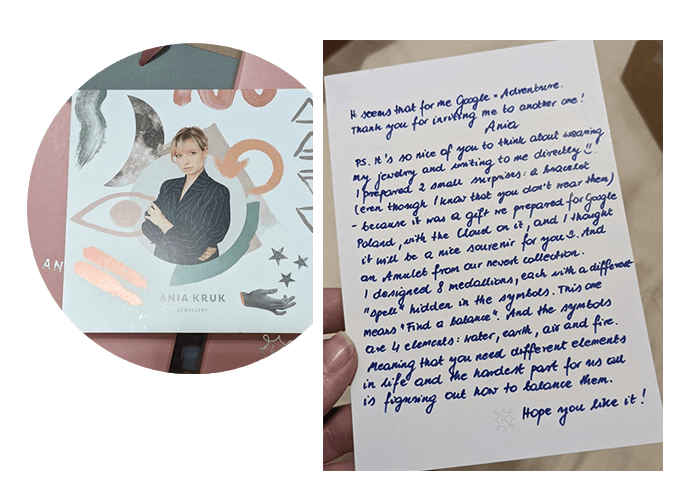
How do you encourage innovation and support your people through change?
Well, if it was anything, 2020 was a time of change for our people and certainly a time when they needed support. It’s always leadership’s obligation to provide context — employees are smart, engaged and want to do the right things. You can really unleash their power when you entrust them with as much information as you can on the “why” because then they can run independently, but in a way that’s complementary.
I’ve spent more time on context, and once that’s really shared and assimilated, we were able to focus on flexibility for employees, making sure there was time and space for fun, and providing opportunities for team members to learn. Lastly, 2020 has given us the opportunity to truly get to know our people on a deeper, more human level. Oftentimes supporting people through change has been supporting their new work-from-home environments, hours of work and sharing our own experiences while giving them the necessary space to adapt.
How is Google Cloud helping customers with their business and digital transformation goals?
Our strategy is completely focused on the customer. We have to:
- Listen and be ready to meet a customer where they are and show them where they can get to.
- Accelerate the time between the promise they bought and the realisation of that value.
- Relentlessly pursue incremental opportunities to add value to our customers.
It’s interesting to think about the phrase “strategic in your industry” in regards to a cloud provider as I actually think, for us, it has been about helping our customers be strategic in their industries. Look, we have the best technology in the world — but it’s honestly only as good as the impact of the problems it’s solving for our customers.
If ever there has been a time where doing things in new ways has been needed, it was last year. And there have been some really inspiring stories in what has been a truly unprecedented time for us all.
One partner in Sao Paulo helped Hospital das Clinicas develop a voice assistant that manages the flow of scheduling appointments, exams and medical administration, which allowed them to respond virtually to certain requests and reduced crowding in facilities at a critical time. Another partner helped develop the COVID-19 National Response Portal that allows healthcare providers across the U.S. to share important data on ICU bed utilization and things like ventilator availability. This reimagining of experiences has been happening around the world and driving innovation. I think about CMS Info Systems in India who were grappling with the challenge of addressing a largely cash economy when there were seniors who shouldn’t have to be waiting in lines and exposing themselves to risk in banks. When they got solving, they delivered a path for seniors to get cash in their homes in a safe and reliable way during the pandemic.
With so much uncertainty surrounding the past year and still today, how do you make decisions in a way that allows you to move forward with confidence?
This is another interesting question. While all decisions that come to me may be important, not all are irreversible — and that’s a really important thing to distinguish. When all decisions are treated as if they can never be changed, you start to stifle an organisation’s creativity and willingness to take risks — and really slow things down. I’ve actually found it more freeing for myself and my organisation to acknowledge that we’ll make the best decision we can make now with the information available, and we’ll do it while agreeing what will be signs or indicators of success. That way you have an agreed measuring stick to evaluate if it was a good call or not — and if it wasn’t, we can simply change it.
Oftentimes both people and companies can paint themselves into a corner if they’re too entrenched in a decision that was made to acknowledge a mistake, or even if not a mistake, data that shows course corrections are needed. I make decisions with an agreement on what success will look like and knowing if the outcomes don’t seem to be matching, we’ll modify and adjust as needed. In a market that’s growing and moving at the pace cloud computing is, it’s more important to be fast than it is to always be right the first time.
When all decisions are treated as if they can never be changed, you start to stifle an organization’s creativity and willingness to take risks — and really slow things down.
With diversity and inclusion being a driving point of today's headlines, how have you championed diversity in the workplace?
We've seen tremendous benefits in our organisation with a shifted focus from "culture fit" to "culture add." It's been a great way to shift the way we've looked at talent as we've worked on hiring for our teams. It involves the interview panel focusing on all the ways a candidate can complement the team, not just be like the team we already have. This may sound obvious, but when we're all so busy, it can just feel easier to lean into candidates you're quick to find a connection with. But the reality is that the more your teams rely on this shortcut to feel comfortable about a candidate, the more susceptible your teams will be to groupthink and the bigger challenges they'll face in innovating. The frisson of disparate views is often a creator of breakthroughs — and if you can create an environment of psychological safety, this will be a much more common outcome.
I've also focused on creating a lot of discrete and varied options for people to opt into in order to learn and participate in sharing their observations and experiences in a psychologically safe way. We're really lucky at Google as there’s a ton of great learning content for folks to engage with that’s available on demand for everyone. We've spent time creating recommended learning journeys through content. I've also hosted sessions where we've all watched the on-demand content in the same window and then had a group discussion about it. This has been super rewarding because of the richness of the discussion. I've also ensured there are venues for people within the org to share their own stories around Diversity, Equality and Inclusion (DEI), and they're supported with guidance on how to tell their stories. The sharing of diversity narratives within my organisation has been one of the most moving and inspiring experiences in my time at Google.
What does cultivating a diverse and inclusive workforce look like today?
There are four main pillars that are critical in cultivating a diverse and inclusive workforce: representation, progression, retention and inclusion. Representation is really about who is in the organisation, and ensuring the workplace really reflects the broader community. Progression is ensuring equitable growth for everyone. That means parity in performance reviews as well as promotion across lines of difference, such as race, gender identity or physical ability. Retention is a focus on reducing attrition in what have been historically under-represented groups. And, fundamental to success across all of these areas is inclusion, which means creating a place where everyone feels like they belong.
This sense of belonging is often undervalued, but it’s really the secret sauce in any successful organisation. Frankly, it’s been a significant driver in my own success. As someone who was adopted, the concept of a sense of belonging touches me to the core. The very fact that I was adopted meant that someone didn't want me. But at the same time, it was my parents who really defined for me what it means to feel like you belong. There I was, in a family that also had a biological son, but there was no discernible difference in our family between the two of us.
Belonging doesn't just mean someone has "included" you or made a space for you in some way — it means your contributions are embraced as an intrinsic part of what the group is. I say this because it’s the other hallmark of belonging, which is the ability to be free to criticise the group without being afraid of being excluded from it. Even as a teenager with angst who often disagreed with her parents, I never had any fear that a difference of opinion would result in them abandoning me.
The breadth of my parents' embrace of me has been such a gift in my life. It taught me that every day we can make choices that transcend birth and background — and build connections that are unbreakable.
Belonging doesn't just mean someone has "included" you or made a space for you in some way — it means your contributions are embraced as an intrinsic part of what the group is.
Key questions to ask ourselves are: How do we go beyond inclusion and equity into creating that sense of belonging for every person we work with? How do we nurture not only one another’s authentic self, but our best selves too? When the world around us seems to be in disarray, it’s critical that we as individuals and collectively as a company uphold our values, challenge our views on family and community, and continue to build bridges — not break them.
The great thing is that a diverse and inclusive workforce is a "two-for" — a two for the price of one set of benefits. On a human level, it’s simply the right thing to do — enabling all people within your organisation to be fully included and have access to equitable outcomes for their work. And there are clear business benefits when we do that. There has been a lot of great research in this area, and it consistently demonstrates financial return and accelerated growth. A 2018 research report from McKinsey called Delivering Through Diversity found corporations that embrace gender diversity on their executive teams were more competitive and 21% more likely to experience above-average profitability. There was also a significant performance impact of racial and ethnic diversity, with 35% more likely to have improved financial returns and the positive association with sales revenue, profits and market share.
There’s no question that diverse groups of people take a bit longer to build into a high functioning team. But, once achieved, the outcome of well-managed teams ultimately leads to much higher performance and productivity.
What career advice would you give to current or aspiring leaders
Learning often starts where feeling foolish begins. Early on in a career it can be difficult to admit where you have gaps because you’re working so hard to try and establish credibility yourself. But it’s critical to always be reaching beyond what you’ve done before; you learn so much faster when you’re willing to ask lots of questions and try things yourself. Those lessons you’ve lived are the ones that really serve you in the future.
Ironically, as you become more senior, it can get more difficult all over again to look foolish. I make it a regular habit, so I never get out of practice. I think it's important for folks in my organisation, and the extended external partner and customer community I’m responsible for, to know I’m an approachable person. They respond to the authenticity that’s shown when they know that together we share both successes and failures.
